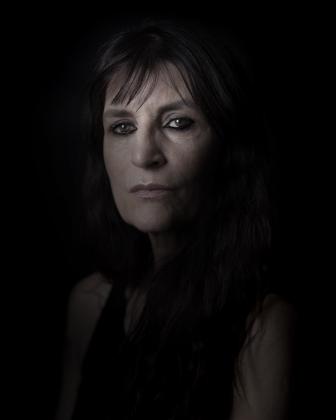Poet
Silvia Bre

Silvia Bre
(Italy, 1953)
© Francesco Francaviglia
Biography
Silvia Bre was born in Bergamo and has lived in Rome for many years. She is known as a poet, novelist and translator, and considered one of the most interesting and original voices in contemporary Italian poetry. Recognition came early in her career; her debut Le barricate misteriose was awarded the prestigious Eugenio Montale Prize, and her second collection of poetry Marmo won the Viareggio Prize. Bre is a translator of French and English poetry; she published Il Canzoniere by Louise Labé, Il giardino by Vita Sackville-West, and Centroquattro poesie and Uno zero più ampio by Emily Dickinson. Her latest poetry collection, La fine di quest’arte, was runner-up for the 2015 Poesia Città di Fiumicino Prize.As her poems depics various landscapes of everyday life, compact and colourful, she doesn’t impress the reader by adapting an easy poetic language. Instead she captures reality in complex and intense words, a monologue intérieur, which one must read with utmost attention. At times, one is startled by strong images entering the poem abruptly, like a flash of lightning: ‘all that I know / it seems like that for everyone / open your mouth slightly, first, / like the moment just before dying’. Her rhythmic short verses, flowing with alliterations, ellipses and oxymorons, explore the vegetal world, the profound self of the poet – and thus the main themes in this book are the relation between poet and nature, the tension between life and art, and finally the meaning of life and death.
A title like La fine di quest’arte (The end of this art) is intriguing as well as ambiguous. It makes you wonder if, by these words, the poet refers to the end of poetry itself or the end of any art that somehow has to do with life. In the first section of this book, we see a poet constantly trying to rediscover herself by listening to and looking at nature, by opening herself completely to it, as if to find a better truth and understanding of her state of mind. The fact that art and life are strictly interwoven becomes even clearer in the second section – the heart of the book – where the centre of discourse is the poetic self versus art, by which she means the art of poetry.
To Bre, writing poetry is an organic, natural process. As she once commented herself: ‘I always write poems one after the other, when I realize they have the same theme, when the need comes to consider them a whole, I collect them and place them in an order’.
© Antoinette Sisto
BibliographyPoetry
Le barricate misteriose. Einaudi, Turin, 2001
Marmo. Einaudi, Turin, 2007
Snack Bar Budapest. With Marco Lodoli. Einaudi, Turin, 2008
La fine di quest'arte. Einaudi, Turin, 2015
Prose
I riposi. Rotundo, Rome, 1990
Sempre perdendosi. Nottetempo, Rome, 2006
Translations
Centoquattro poesie di Emily Dickinson. Einaudi, Turin, 2011
Il canzoniere di Louise Labé. Mondadori, Milan, 2000
Il giardino di Vita Sackville-West. Elliot, Rome, 2013
Anthologies
Uno zero più ampio. Anthology of poems by Emily Dickinson. Einaudi, Turin, 2013
Links
Video of Bre reading at Poetitaly in 2014
Poetry by Bre in Dutch translation at De Revisor
IMDB page of the film Snackbar Budapest, based on Bre’s novel
Poems
Poems of Silvia Bre
Sponsors
























